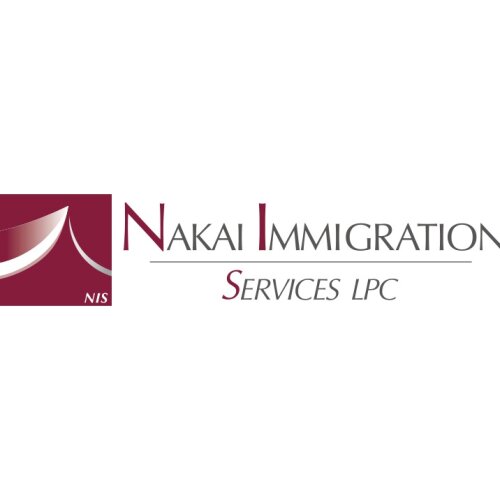Best Immigration Lawyers in Tokyo
Share your needs with us, get contacted by law firms.
Free. Takes 2 min.
List of the best lawyers in Tokyo, Japan
About Immigration Law in Tokyo, Japan
Immigration law in Tokyo, Japan is governed by several national laws and regulations that apply uniformly across the country. The Immigration Services Agency, under the Ministry of Justice, is the primary body responsible for overseeing immigration processes. Tokyo, being the capital city, is home to a significant expatriate population, and as such, has a well-developed infrastructure to handle various immigration-related issues. The laws cover a wide array of areas including work visas, residency permits, asylum requests, and deportation policies.
Why You May Need a Lawyer
People may require legal assistance with immigration matters in several common situations. Applying for or renewing work or study visas often involves complex paperwork and stringent requirements that can be difficult to navigate without professional help. Legal aid may also be necessary when facing deportation or revocation of residency. Individuals seeking permanent residency status or Japanese citizenship might also benefit from legal guidance to ensure compliance with all procedural and documentary requirements. Furthermore, family reunification cases or intricate matters such as asylum claims often require specialized legal expertise.
Local Laws Overview
Key aspects of local immigration laws in Tokyo include the process for obtaining a Certificate of Eligibility, which is a prerequisite for most visa categories. The types of visas available are classified broadly into working, non-working, and family-related groupings, each with distinct criteria. Residency status in Japan ranges from short-term visitor permits to long-term residential visas, and eventually to permanent residency. The laws also emphasize strict adherence to the conditions of stay as outlined in one’s visa, with non-compliance potentially resulting in penalization or deportation. Additionally, Tokyo's local government provides resources to assist both newcomers and long-term residents with integration and legal matters.
Frequently Asked Questions
What is the process to obtain a work visa in Japan?
To obtain a work visa in Japan, you typically need a Certificate of Eligibility (COE) from your prospective employer, after which you can apply for a work visa through a Japanese embassy or consulate in your home country.
Can I switch from a student visa to a work visa?
Yes, it is possible to change from a student visa to a work visa, but you must have a job offer, and your new employer will need to assist in the process of obtaining the necessary Certificate of Eligibility.
How can I bring my family to Japan?
Family members can be brought to Japan under a Dependent Visa, which requires proof of relationship and financial capability to support them during their stay.
What are the requirements for permanent residency?
Eligibility for permanent residency typically requires continuous residence in Japan for at least ten years, good conduct, and financial stability. Some categories such as those with spouses who are citizens or permanent residents may have shorter periods.
Is it possible to appeal a visa denial?
Yes, it is possible to appeal a visa denial, but the process can be complex. Legal advice is recommended to strengthen your case and ensure proper documentation and procedural compliance.
What should I do if my visa is about to expire?
It is important to apply for an extension of stay well before your visa expires by submitting the required forms to the Immigration Bureau, ensuring compliance with all current visa stipulations.
How are business visas obtained?
Business visas are usually obtained by securing a Certificate of Eligibility sponsored by a Japanese business entity or through demonstrating the business intent and financial capability to the Japanese embassy.
What rights do I have while on a student visa?
On a student visa, you are allowed to study and work part-time up to 28 hours a week (this may increase during school holidays). You must maintain your enrollment and academic standards as specified.
Are there legal services available in English?
Yes, there are legal services available in English in Tokyo that specialize in immigration law. Many law firms provide bilingual support to cater to the expatriate community.
What is the role of the Immigration Services Agency?
The Immigration Services Agency handles all matters related to entry, stay, and visa status of foreigners in Japan. It is the primary authority for processing applications and enforcing immigration laws.
Additional Resources
For those seeking further information or assistance with immigration issues, consider reaching out to the Tokyo Immigration Bureau, which provides services for foreigners. The Japan Legal Support Center offers free or low-cost legal aid for those who qualify. Additionally, various non-profits and international community organizations in Tokyo offer support and resources for navigating immigration-related issues. Legal consultation services specific to Tokyo can also be found through the Tokyo Bar Association, which offers multilingual support.
Next Steps
If you find yourself in need of legal assistance for immigration matters in Tokyo, it is advisable to seek out a specialized immigration lawyer or contact a legal support organization immediately. Assess your specific needs and gather all necessary documents related to your situation. Consulting with a lawyer can help clarify your options and recommend the most effective approach to your immigration issue. For any urgent matters, visit the nearest immigration bureau for direct assistance.
Lawzana helps you find the best lawyers and law firms in Tokyo through a curated and pre-screened list of qualified legal professionals. Our platform offers rankings and detailed profiles of attorneys and law firms, allowing you to compare based on practice areas, including Immigration, experience, and client feedback.
Each profile includes a description of the firm's areas of practice, client reviews, team members and partners, year of establishment, spoken languages, office locations, contact information, social media presence, and any published articles or resources. Most firms on our platform speak English and are experienced in both local and international legal matters.
Get a quote from top-rated law firms in Tokyo, Japan — quickly, securely, and without unnecessary hassle.
Disclaimer:
The information provided on this page is for general informational purposes only and does not constitute legal advice. While we strive to ensure the accuracy and relevance of the content, legal information may change over time, and interpretations of the law can vary. You should always consult with a qualified legal professional for advice specific to your situation.
We disclaim all liability for actions taken or not taken based on the content of this page. If you believe any information is incorrect or outdated, please contact us, and we will review and update it where appropriate.
Browse immigration law firms by service in Tokyo, Japan
Tokyo, Japan Attorneys in related practice areas.











